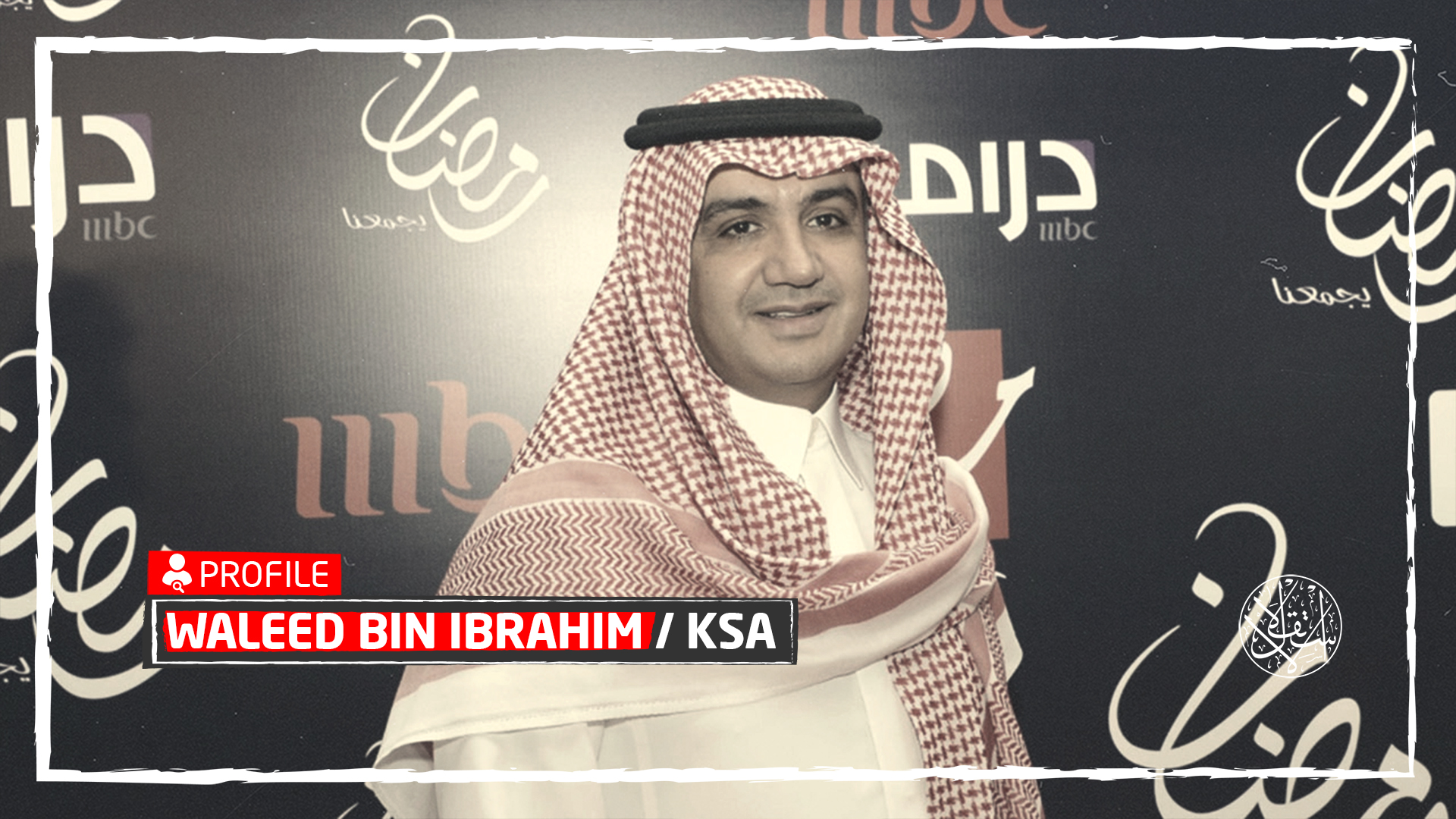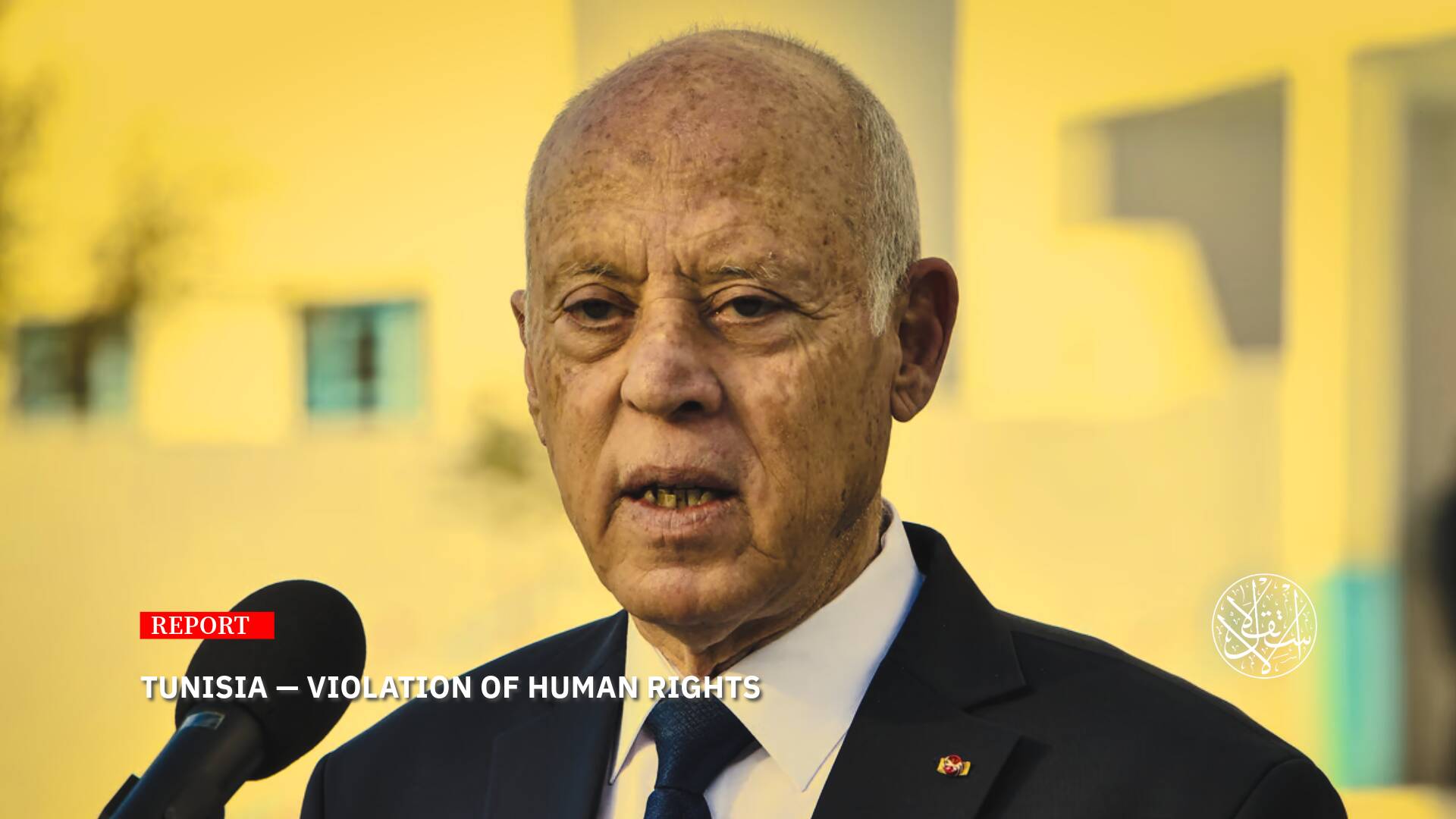The Owner of MBC, Waleed bin Ibrahim, is a Pariah of MBS

With his prominent status, the owner of the famous MBC channels, Saudi businessman, Walid bin Ibrahim, has contributed to changing the identity of the Saudi people towards openness and emancipation.
Before Riyadh witnessing of entertainment and nights of long parties, in honor of Crown Prince Mohammed bin Salman (MBS), MBC was a powerful Saudi shadow empire decades ago, in which loud celebrations were held and celebrated the stars of the Arab world and the world, in addition to its political role in guiding public opinion inside the Kingdom and throughout the Arab world.
The owner of the famous channels, Waleed bin Ibrahim, 60, did not stop there, but turned his media groups into a “deadly weapon in the face of the Arab Spring revolutions in Egypt, Yemen, Libya, Tunisia and other countries that were under the authority of a military dictatorship.
Son-In-Law of the King
Sheikh Waleed bin Ibrahim bin Abdulaziz al-Ibrahim was born in 1962 in the capital, Riyadh, where he belongs to the al-Ibrahim family, one of the most important families of the Kingdom who held high administrative positions within the state, in addition to their intermarriage with kings, and many prominent princes of Al Saud.
Waleed's sister, al-Jawhara bint Ibrahim al-Ibrahim, is the last wife of the late King Fahd bin Abdulaziz, and she gave birth to her son Abdulaziz, and therefore Waleed is the king's son-in-law, and the uncle of his son.
On the other hand, Walid belongs to the influential family of Ibrahim. His grandfather and father were a contemporary of King Abdul Aziz bin Abdul Rahman, the founder of the kingdom, and they were among his loyal men.
Waleed lived under the care of his father, Ibrahim bin Abdulaziz al-Ibrahim, who held important positions during the reign of King Abdulaziz and his sons after him, Kings Saud, Faisal, Khaled and Fahd.
Ibrahim al-Ibrahim, Waleed’s father, had held several positions within the state, the most important of which was the deputy of the Makkah region, the advisor to the Minister of the Interior, and finally, the governor of the al-Baha region in the southwestern part of the country, until he died in 1986 in a tragic accident, when the torrent swept away his car in Wadi al-Rawda Hail region, so he drown and died.
The father passed away, leaving his sons, headed by Waleed, a huge fortune, and most importantly, growing influence within the royal court.

Founder of MBC
Bin-Ibrahim was like the second generation of rulers and statesmen in the Kingdom who study abroad; he studied media outside the country, exactly in Oregon, USA during the eighties.
When returning, his name began to rise in 1990, as he was a shareholder, and a member of the board of directors of United Press International.
On September 18, 1991, Ibrahim launched MBC or Middle East Television Network channels directly under his supervision, and it was among the first private, non-encrypted Arab channels, and represented an Arab revolution in the world of satellite channels at the time.
Before the presence of the head of the entertainment authority in the Kingdom, Turki Al Sheikh, Waleed was a pioneer through his group of modern channels, where he was keen to reproduce American television programs and present them to Saudi and Arab viewers with all the moral and cultural variables about the values and customs of conservative societies.
With its entertainment sector, MBC was considered a wave of Western tide, but on the political level it was the expressive and carrier of the views of the Saudi royal family.
On June 29, 2017, MBC and Waleed bin Ibrahim were mentioned in one of the WikiLeaks leaks.
In one of the documents talking about Ibrahim’s meeting with two American personalities in a cafe in Jeddah, he said: “It is the Saudi government that supports this openness of channels and considers it anti-extremist ideology through channels such as MBC and Rotana, having a great impact on the ordinary citizens.
Although Ibrahim was the front of the channel network, it was secretly associated with King Fahd bin Abdulaziz, especially since half of the group’s shares are owned by the son of the late King Fahd and his nephew Abdulaziz bin Fahd.
Bin Ibrahim quickly expanded the group after launching a number of additional film and television channels including MBC 2, MBC 3, MBC 4 and MBC action, and also launched MBC Persian and MBC Bollywood.
In February 2003, bin Ibrahim launched Al-Arabiya channel with the aim of providing an alternative to the Qatari channel Al-Jazeera, which was considered threatening the narratives of the Saudi regime and some other Arab regimes.

Octopus Corruption
About Ibrahim’s power and influence, he was selected in 2007 to be ranked 27th among the 100 most influential people in the world, according to the classification of Arabian Business magazine of financial and economic affairs.
In 2017, Ibrahim was ranked 27th on the list of the richest people in the Middle East, with a fortune worth more than 6 billion dollars, according to Forbes magazine.
Waleed bin Ibrahim's political role came with the outbreak of the Arab Spring revolutions in 2011, and on November 9, 2012, he launched MBC Egypt, which concentrated on the counter-revolution.
The channel actively participated in the preparation of the military coup against the elected government led by President Mohamed Morsi, and one of its most prominent programs was the program of the satirical journalist Bassem Youssef, who was criticizing and attacking the existing legitimate authority.
However, after the military coup on July 3, 2013, the policy of Saudi channels and its board chairman, Ibrahim, who announced on May 21, 2014, the permanent suspension of Bassem Youssef’s program, had changed, justifying that al-Sisi, the head of the Egyptian regime, was a “hero.”

But the biggest shock in the life of Ibrahim, chairman of the MBC Group, son-in-law of King Fahd, and a scion of the family close to the royal court, occurred on November 4, 2017.
Waleed was among the most prominent figures who were detained in the big campaign of arrests carried out by the Royal Anti-Corruption Committee, with princes inside the Ritz-Carlton hotel in the capital, Riyadh.
On January 26, 2018, Ibrahim was released, and the American Al-Hurra website revealed details of what it described as the deal which the authority made with him, according to which he relinquished its ownership in exchange for his freedom, and his remaining in the management of the group, in addition to paying a large financial settlement.
On January 27, 2018, Financial Times said, in a report, that "Saudi officials offered Ibrahim his freedom in exchange for giving up his share in the media network."
The newspaper considered that "the case shows that the anti-corruption campaign aims to nationalize the centers of power, in preparation for a new era led by the Crown Prince, bin Salman."
Although Ibrahim remained at the head of MBC, his influence and power were reduced.
Sources
- The owner of MBC channels: Sisi is a here, and we arrested Bassem Youssef for not affecting the elections [Arabic]
- Who is Waleed Al Ibrahim? [Arabic]
- Watch: Walid Al Ibrahim in his first public appearance after his release [Arabic]
- Prince Ibrahim bin Abdulaziz Al Ibrahim [Arabic]
- How did MBS take the MBC group? [Arabic]
- The Financial Times reveals the details of the night of Walid al-Ibrahim’s arrest, the price of his freedom, and bin Salman’s efforts to control MBC [Arabic]








